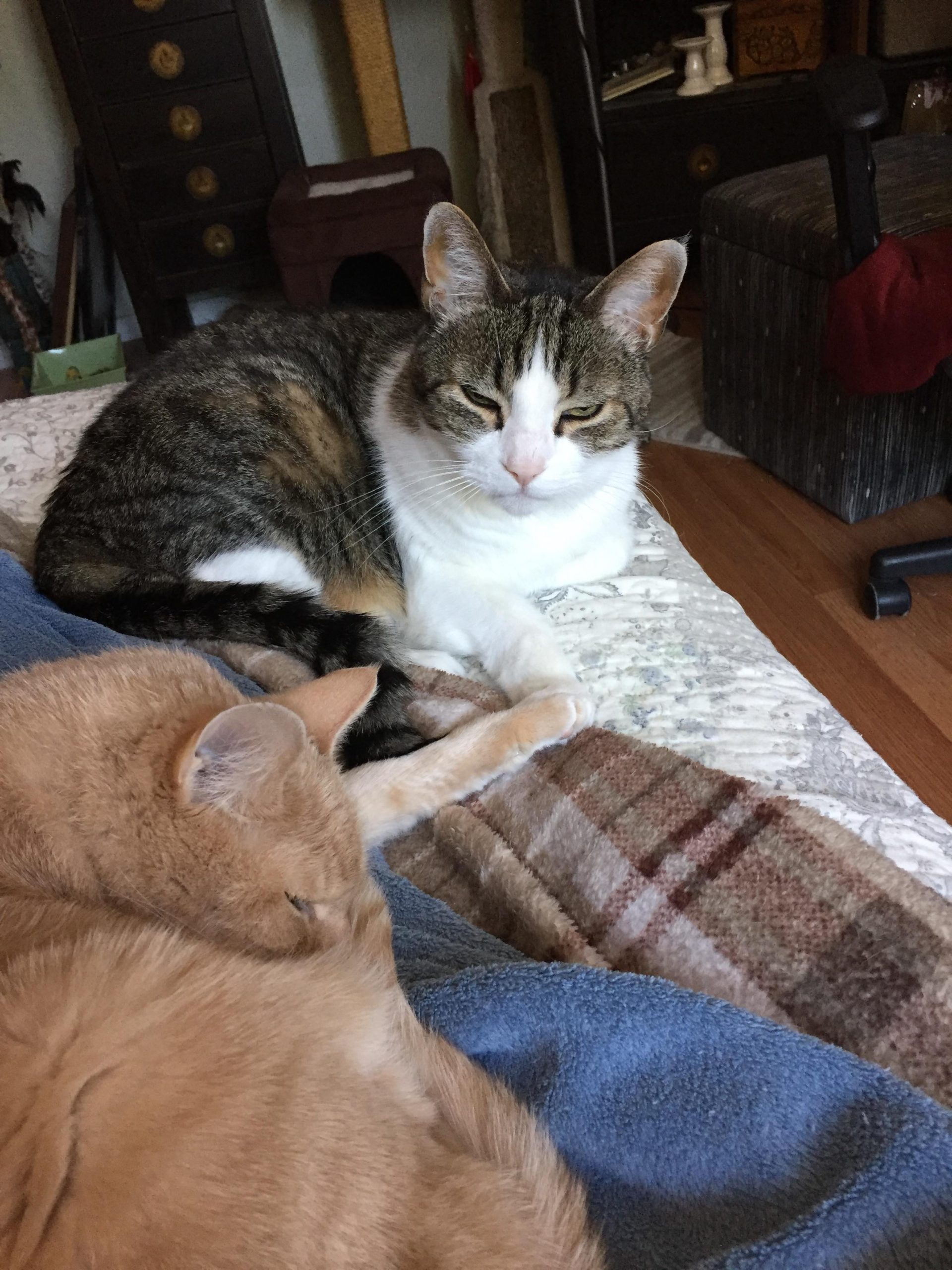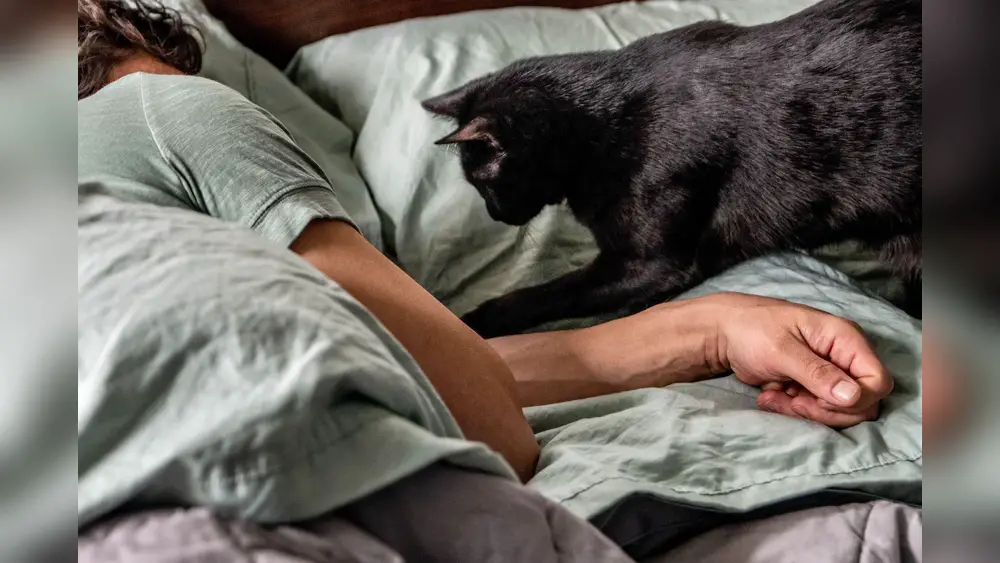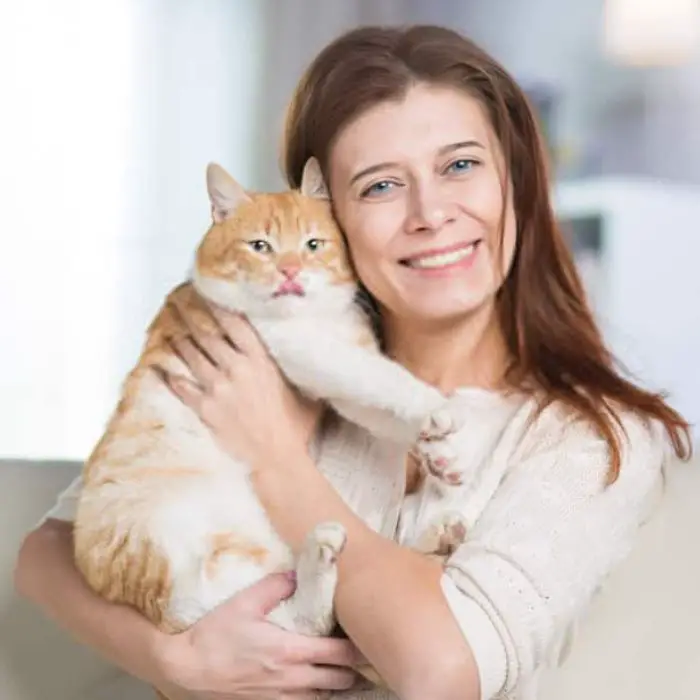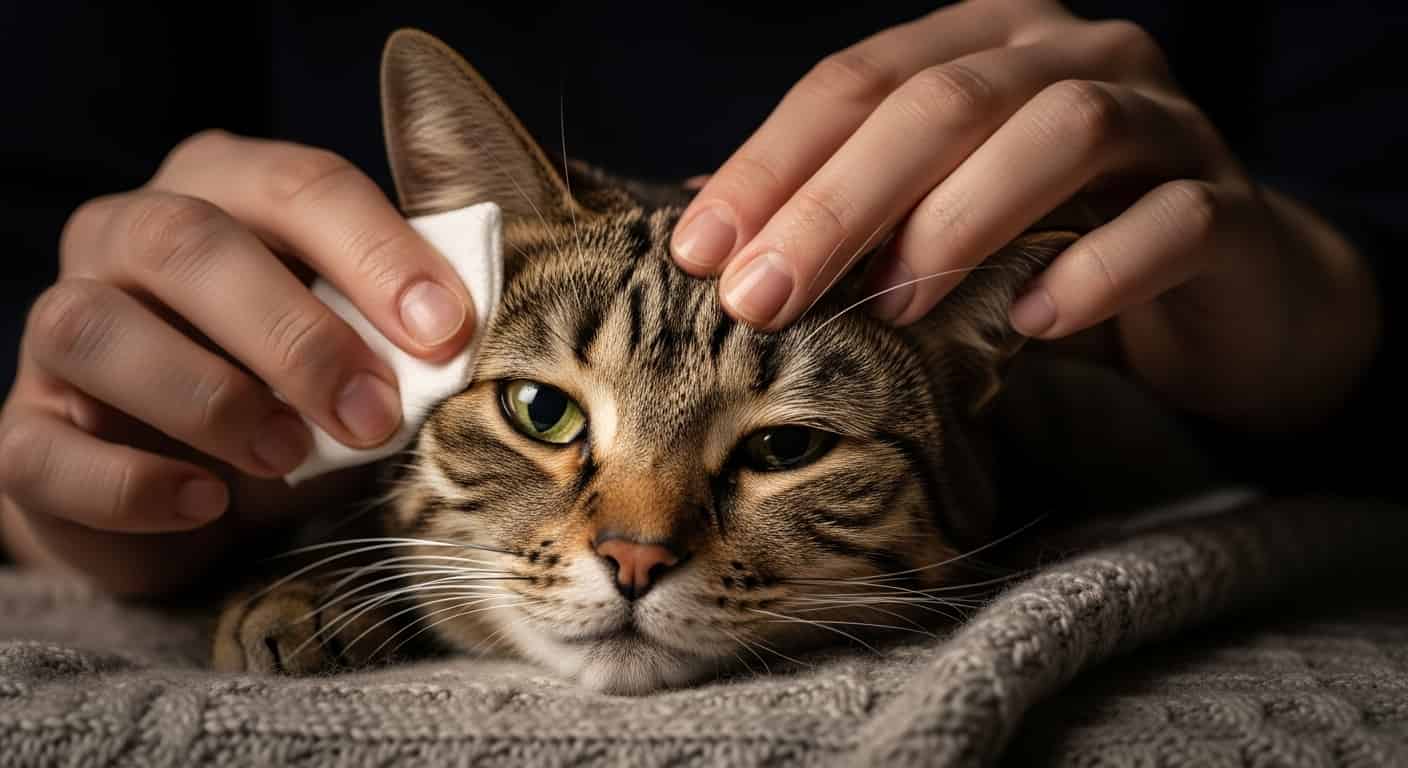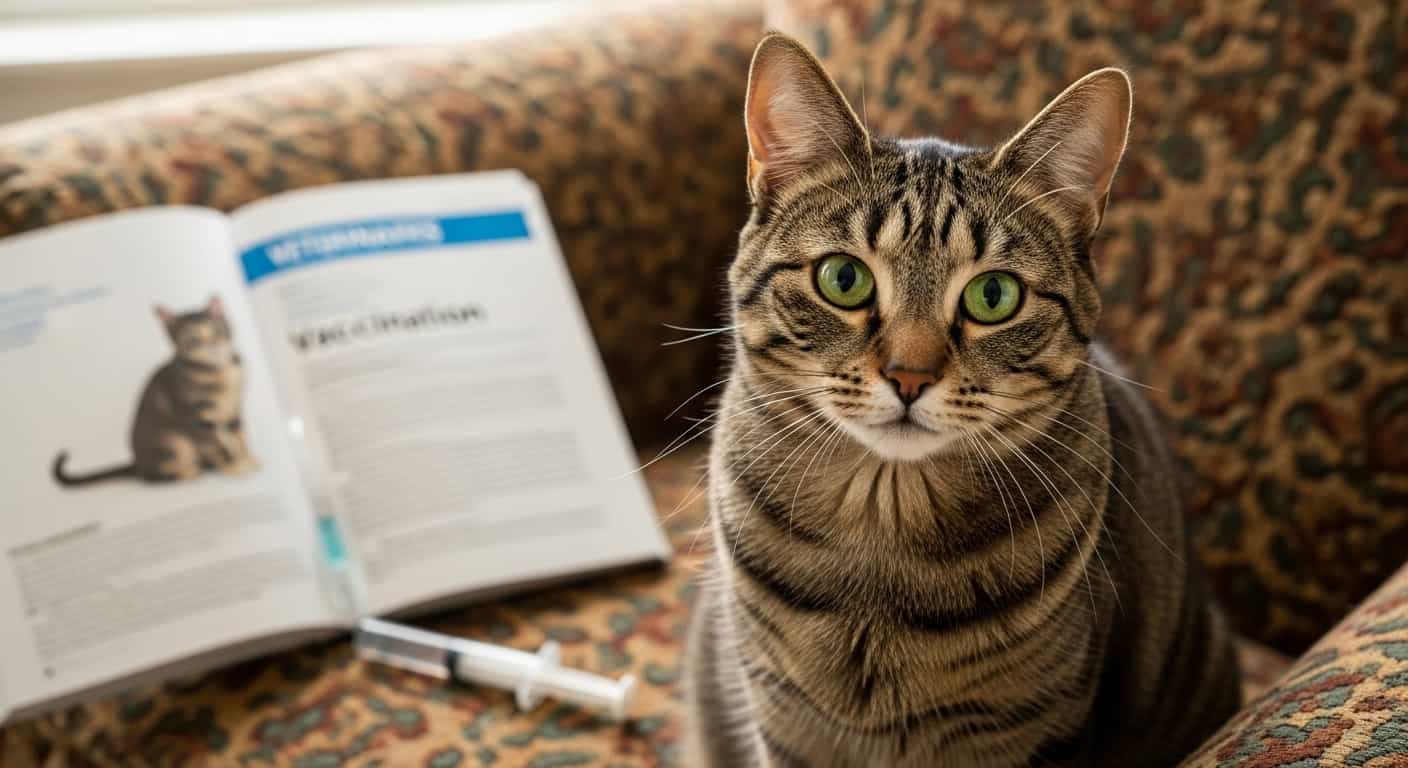Have you ever wondered if your cat feels lonely? You might think cats are happy on their own, but sometimes they need a friend just like we do.
Table of Contents
ToggleAdding another cat to your home could bring joy or cause stress—how do you know what’s best for your furry companion? Keep reading to discover the signs your cat might need a friend and how to make the right choice for your pet’s happiness and well-being.
Signs Your Cat May Be Lonely
Cats are often seen as independent pets. Yet, they can feel lonely too. Understanding the signs of loneliness helps you care for your cat better. Watch for changes in your cat’s usual behavior. These signs may show your cat needs more companionship or attention.
Changes In Behavior
A lonely cat may act differently than usual. They might hide more or seem less active. Some cats stop playing or exploring their space. These changes can mean your cat feels alone or bored.
Increased Vocalization
Cats may meow or yowl more when lonely. This is their way of asking for company. You might hear your cat calling out at odd times. They want to get your attention or find a friend.
Destructive Habits
Lonely cats sometimes start scratching furniture more. They may chew on things they usually ignore. This behavior shows frustration or stress. It is a signal they need something to do or a companion.
Excessive Grooming
Too much grooming can be a sign of loneliness. Cats may lick or bite their fur until it thins. This can cause sore spots or hair loss. It is a way to cope with stress and loneliness.
Seeking Constant Attention
Your cat may follow you everywhere in the house. They might jump on your lap often or nudge your hand. This shows they want more affection and interaction. They feel lonely and want to be close to you.
Here's a related post that you might find useful. Cat Peeing Blood Outside Litter Box: Urgent Causes & Solutions
Benefits Of Having A Cat Companion
Having a second cat at home can bring many good changes. Cats are social animals. They enjoy company just like people do. A cat friend can help your cat feel happier and healthier. Here are some key benefits of having a cat companion.
Reduced Stress And Anxiety
A cat friend can lower your cat’s stress. They comfort each other by being close. This helps reduce anxiety during loud noises or changes. Cats groom each other, which calms them down. Feeling safe is easier with a friend nearby.
Improved Social Interaction
Cats learn to share space and play together. This improves their social skills. They communicate better with other cats and humans. A cat companion encourages friendly behaviors. This makes your cat more confident and less lonely.
Increased Play And Exercise
Two cats usually play more than one. They chase, pounce, and wrestle together. This keeps them active and fit. Playtime helps stop boredom and bad habits. Exercise is important for a cat’s health.
Enhanced Mental Stimulation
Having a cat friend creates new challenges and fun. Cats solve problems and learn from each other. This keeps their mind sharp and alert. Mental activity helps prevent behavior problems. A busy brain makes a happy cat.
Choosing The Right Companion Cat
Choosing the right companion cat is important for a happy home. Not all cats get along well. The right match helps both cats feel safe and loved. Careful thought makes a big difference.
Think about your current cat’s personality and needs. Pick a friend who fits well with their style. This helps avoid stress and fights. It also builds a strong bond between them.
Considering Age And Temperament
Young cats and older cats may not match well. Older cats often prefer calm, gentle friends. Kittens can be very active and playful. Temperament matters too. A shy cat needs a quiet companion. A bold cat may enjoy a playful buddy. Match their moods for smooth friendship.
Here's a related post that you might find useful. Cat Keeps Waking Me Up at Night: Proven Tips to Stop It Fast
Introducing Cats Gradually
New cats need time to adjust. Sudden meetings can cause fear and aggression. Start with separate spaces and slow introductions. Let them smell each other under doors. Swap bedding so they get used to scents. Short, supervised visits come next. Patience helps build trust and friendship.
Matching Energy Levels
Energy levels affect cat friendships. A very active cat can overwhelm a calm one. Both cats should enjoy similar play styles. This keeps them happy and engaged. Balanced energy avoids stress and loneliness. Observe your cat’s behavior before choosing a friend.
Adopting From Shelters
Shelters have cats with many personalities. Staff can help find cats that fit your home. They often know how cats behave with others. Adopt cats that are friendly and social. This increases chances of a good match. Shelters also provide health checks and support.

Credit: www.youtube.com
Preparing Your Home For Two Cats
Preparing your home for two cats takes some planning. Cats need their own space to feel safe and happy. Setting up your home well helps both cats live together peacefully. It also reduces stress and fighting. Here are key steps to prepare your home for two cats.
Providing Separate Resources
Each cat needs its own food and water bowls. This avoids competition and keeps them calm. Place bowls in different rooms or corners. Separate feeding spots help both cats eat without worry. Also, provide separate beds or resting spots. This lets each cat have a quiet place to relax.
Creating Safe Spaces
Cats like places to hide and feel secure. Create cozy spots with blankets or boxes. High shelves or cat trees give them a safe view. These spaces help reduce stress and give each cat a private area. Safe spaces are important for a peaceful home.
Setting Up Multiple Litter Boxes
Two cats need more than one litter box. The rule is one box per cat plus one extra. Spread the boxes in different rooms. This prevents fights over bathroom space. Keep boxes clean to avoid bad smells and mess. Multiple litter boxes keep cats comfortable and healthy.
Ensuring Plenty Of Toys And Activities
Toys keep cats active and stop boredom. Provide many toys like balls, feathers, and puzzle feeders. Rotate toys to keep them interesting. Play with both cats daily to build trust. Activities help cats bond and use their energy in good ways.
Managing The Introduction Period
Introducing a new cat to your home needs care and patience. Managing this period well helps both cats adjust. It lowers stress and builds trust between them. The process takes days or weeks, depending on the cats’ personalities.
Focus on small steps. Each step should feel safe for your cats. Watch their behavior closely. Adjust the pace to their comfort level.
Slow And Controlled Meetings
Start with brief, calm meetings in a quiet room. Keep the cats separated but let them see each other through a gate or screen. Increase meeting time slowly. Stop if either cat seems scared or aggressive.
Using Scent Exchange Techniques
Swap bedding or toys between cats. This helps them get used to each other’s smell. Rub a cloth on one cat and place it near the other. Repeat this daily to build familiarity without direct contact.
Monitoring Interactions
Watch their body language during meetings. Look for signs of curiosity or calmness. Hissing, growling, or hiding show discomfort. Step back if these signs appear. Praise calm and friendly behavior with gentle petting or treats.
Handling Conflicts Calmly
Stay calm if cats fight or argue. Avoid yelling or punishment. Separate them gently and give time to cool down. Return to earlier steps if needed. Patience helps cats learn to live together peacefully.

Credit: www.reddit.com
Alternatives To A Cat Friend
Not every cat needs a feline friend. Some cats prefer to be the only pet in the house. There are ways to keep your cat happy and active without adding another cat to the family. These alternatives can help reduce boredom and loneliness.
Using toys, spending time with your cat, and changing their environment can make a big difference. These methods keep your cat’s mind and body busy. They also strengthen your bond with your pet.
Interactive Toys And Puzzles
Interactive toys keep cats busy and mentally sharp. Puzzle feeders make cats work for their food. This mimics hunting and keeps them active. Toys that move or make noise catch their attention. Rotating toys often keeps playtime exciting and fresh.
Increased Human Interaction
Spending more time with your cat helps reduce loneliness. Simple activities like petting and talking soothe cats. Play sessions with a wand toy or laser pointer are fun. Daily attention builds trust and comfort. Your presence alone can calm a restless cat.
Environmental Enrichment
Changing your cat’s space keeps life interesting. Add climbing shelves or scratching posts to explore. Window perches let them watch birds and outside life. Boxes and tunnels create hiding spots and fun. Different textures and smells stimulate their senses.
Scheduled Playtime
Set a routine for daily play sessions. Cats thrive on regular, predictable activities. Short, frequent playtimes help burn energy. Use a variety of toys to keep interest high. Consistent play improves mood and reduces stress.
When Not To Add A Second Cat
Adding a second cat to your home can bring joy and companionship. Yet, it is not always the best choice. Some cats do not like sharing their space. Others may find a new cat stressful. Knowing when not to add a second cat helps keep your pets happy and healthy.
Signs Of Stress Or Anxiety
Your cat may show signs of stress before a new cat arrives. Watch for hiding, excessive grooming, or loss of appetite. Sudden aggression or vocalizing a lot can also mean anxiety. These signs suggest your cat may struggle with a new friend.
Health Concerns
Cats with health problems need special care. Adding a new cat can spread germs or cause injury. Cats with weak immune systems or chronic illness should not meet new cats. Protect your sick cat by keeping the home calm and quiet.
Behavioral Issues
Some cats have strong territorial behavior. They may fight or act aggressively toward new cats. Cats with a history of biting or scratching should stay alone. Introducing another cat can make these problems worse.
Owner’s Lifestyle Considerations
Caring for two cats takes more time and money. Think about your daily routine and budget. Limited time for play, cleaning, or vet visits can stress both cats. Only add a second cat if you can meet their needs well.

Credit: www.reddit.com
Frequently Asked Questions
Does My Cat Need A Friend For Company?
Cats can enjoy companionship but some prefer solitude. Observe your cat’s behavior for signs of loneliness or boredom to decide.
How To Tell If My Cat Is Lonely?
Look for excessive meowing, destructive behavior, or lethargy. These signs may indicate your cat feels lonely and needs interaction.
Can Two Cats Live Happily Together?
Yes, with proper introductions and space, cats can form strong bonds and enjoy each other’s company peacefully.
What Are The Benefits Of Having Two Cats?
Two cats provide social interaction, mental stimulation, and reduce boredom. This can improve your cat’s overall happiness and health.
Conclusion
Cats can enjoy having a friend, but not all need one. Watch your cat’s behavior and mood closely. Some cats prefer being alone and feel happy that way. Others may benefit from a playmate to stay active and social. Think about your cat’s personality and daily routine.
Giving love and attention matters most, with or without a second cat. A happy cat feels safe and cared for every day. Your choice should fit your cat’s needs and your home. Take time, observe, and decide what works best.

